PH agencies commit to promote gender equality in climate justice, disaster risk mitigation
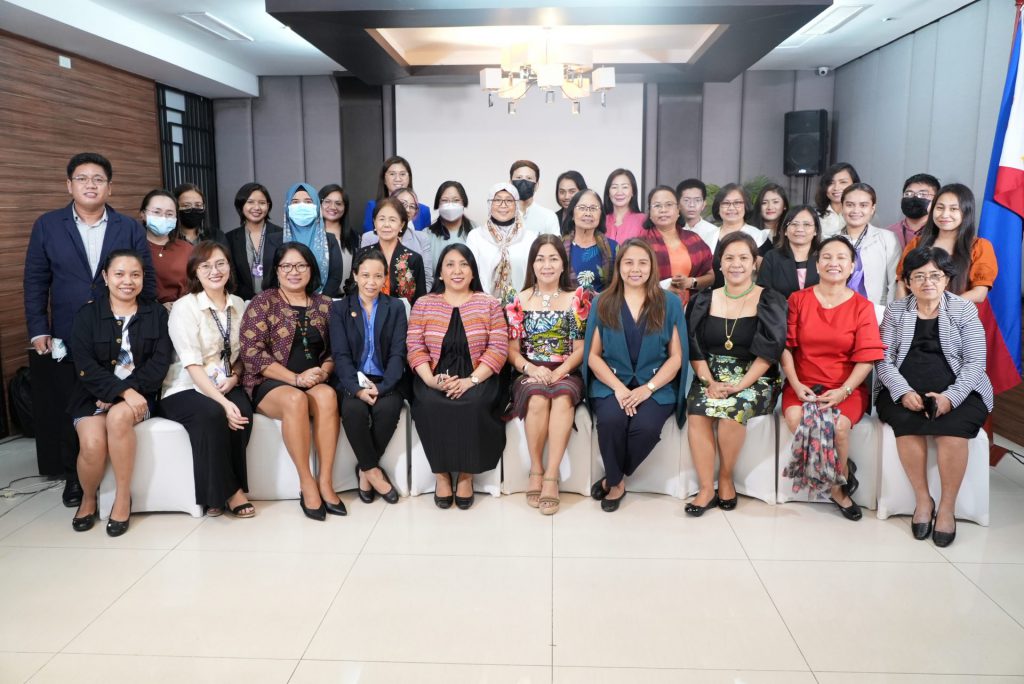
Aiming at promoting gender equality in the context of climate change, environmental and disaster risk reduction and mitigation (DRRM), key agencies, organizations, and partners gathered and shared insights on the United Nations Committee on the Status of Women 66th Session (UN CSW66) in a Feedback Forum led by the Philippine Commission on Women on May 20, 2022 via hybrid format with the in-person participants at Brentwood Suites, Quezon City. Aside from discussing the highlights of the Philippines’ participation to the CSW66 which was conducted last March through online and face-to-face format as well, the Feedback Forum also secured the commitments of agencies and partners in pursuing the agreed conclusions of UN CSW 66.
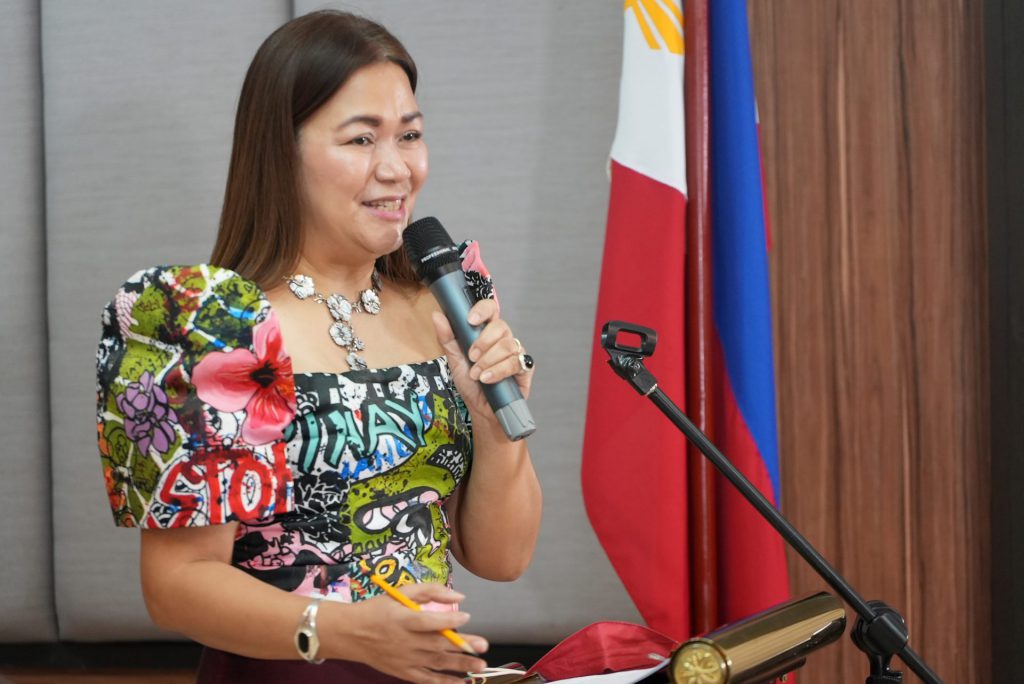
Opening the session attended by over 200 participants, in-person and online, PCW Chairperson Sandra Sanchez-Montano acknowledged and thanked the Department of Foreign Affairs, co-lead for CSW matters and co-sponsor of the feedback forum, and all the agencies that formed the Philippine delegation and the Technical Working Group at the 66th session.
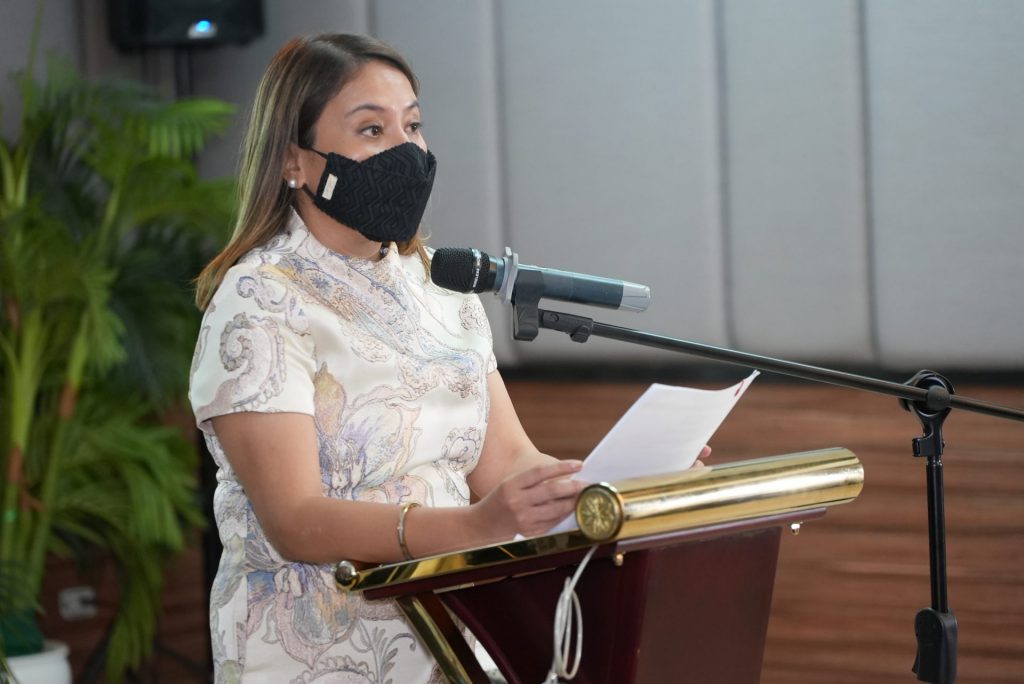
PCW Executive Director Atty. Kristine Rosary E. Yuzon-Chaves shared the background and theme of the UN CSW66, also providing the core points of discussion for the feedback forum,
“This year’s CSW66 focused on the priority theme “Achieving gender equality and the empowerment of all women and girls in the context of climate change, environmental and disaster risk reduction policies and programmes”; review theme “Women’s economic empowerment in the changing world of work”; and emerging issue “Harnessing COVID-19 recovery for gender equality and a sustainable future,” ED Yuzon-Chaves detailed.
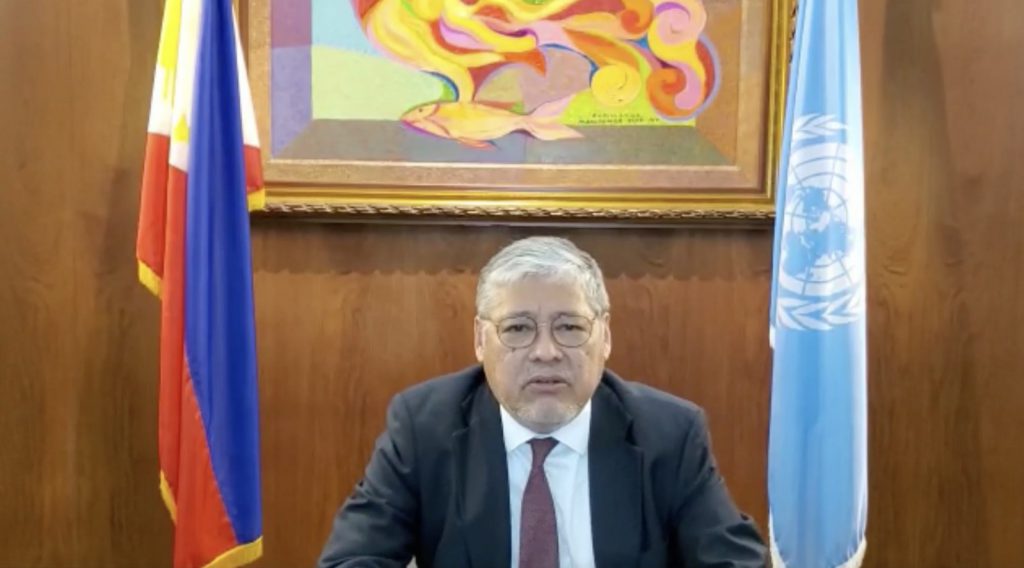
Ambassador Enrique A. Manalo, Permanent Representative of the Philippines to the United Nations in New York, USA, underscored the relevance of the said CSW66 main theme.
“CSW66 recognized the fact that climate change is not gender neutral. Women and girls are disproportionately affected by environmental disasters largely because of existing gender inequalities… including gaps that persist in land ownership, decision making positions, health care, among others,” Ambassador Manalo said.
This was also one of the points highlighted by Chair Sanchez-Montano in her country statement presented at the UN CSW 66, saying “Women are likely to suffer higher rates of mortality, morbidity and violence from the effects of climate change and disasters. In times of crises, women’s and girls’ unpaid care and domestic work is likely to increase, as also seen during this pandemic. Due to enduring stereotypes, women continue to be underrepresented in STEM education and in decision- making processes at all levels of climate change development planning and DRRM phases of prevention and mitigation, preparedness, response, rehabilitation, and recovery.”
At the UN CSW 66, the Philippines committed to “accelerate progress for gender equality and the empowerment of all women and girls in climate change, environment and disaster contexts, by: advocating for meaningful participation and leadership of women in climate, disaster and humanitarian action; increasing resilience through gender-responsive strategies to address impending impacts of climate-induced disasters; providing climate and disaster risk-related information, technologies and financing; improving access to post-disaster assistance; integrating differentiated needs in Climate Change Adaptation and DRRM; and protecting vulnerable groups from all forms of violence during crises.”
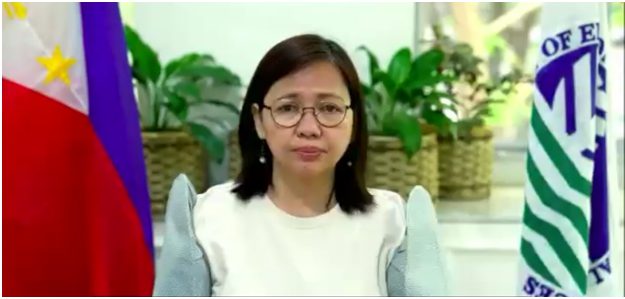
But why is there a need for the Philippines to pursue the said actions? At the UN CSW 66 Ministerial Round Table, Department of Environment and Natural Resources Undersecretary for Finance, Information Systems and Climate Change, Usec Analiza Rebuelta-Teh, expounded on this need for the Philippines to ramp up actions towards climate justice and disaster risk mitigation, considering the country’s disaster situation.
“The Philippines’ location in the tropical cyclone belt and Pacific Ring of Fire incites constant and severe risk of extreme climate-related and geological hazards. It ranks fourth among countries most affected by extreme weather events in the 2021 long-term global climate risk index, with 317 exceptionally devastating events that occured from 2000-2019 more than any other country in the top ten,” USec. Rebuelta-Teh said.
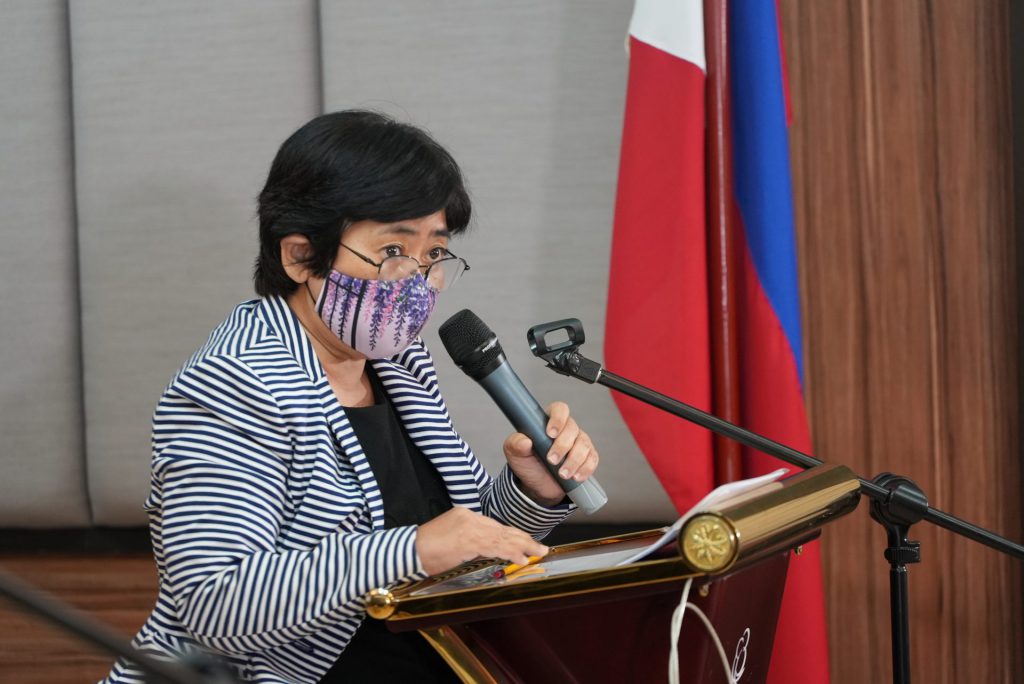
Sharing her insights at the feedback forum, DENR’s Climate Change Service and GAD Office Dir. Elenida Dr. Basug said the DENR is already responding to gender issues by “building adaptive capacities and resilience of the vulnerable communities through investing on recovery policy and program packages and prioritizing social services, technological upgrading, and green development.”
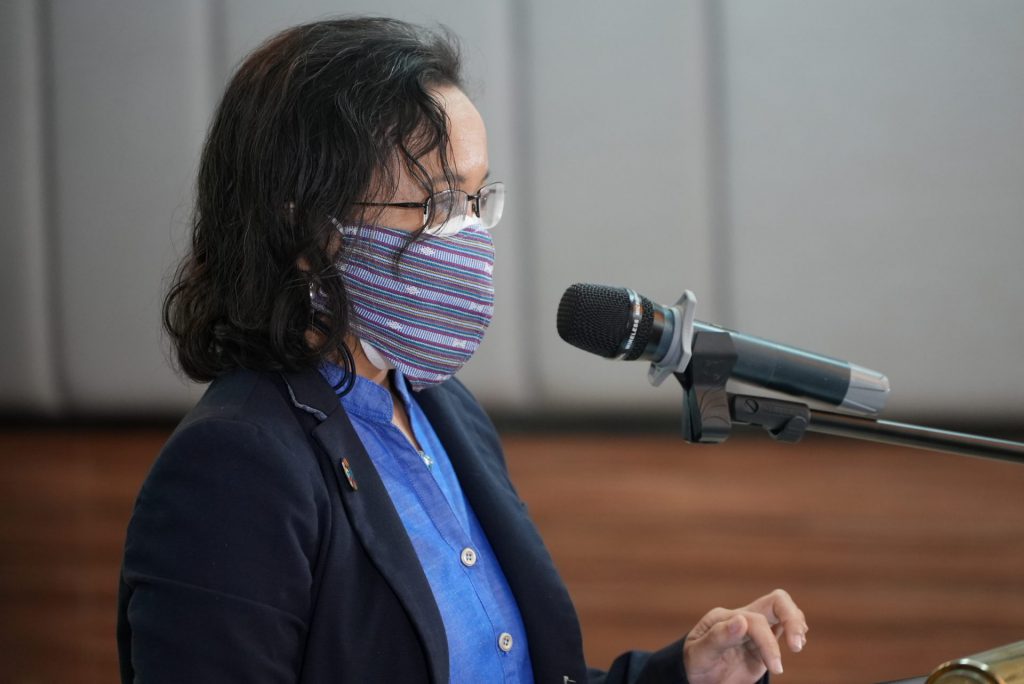
Aside from the public sector, non-government organizations and other sectors must be tapped. The Institute for Climate and Sustainable Cities (ICSC), which participated in the CSW66 Interactive Expert Panel, stressed the value of an intersectional approach in addressing climate change. Ms. Maria Golda P. Hilario, ICSC’sAssociate for Program Development, said that we must “it is necessary to leverage knowledge from women in all their diversity – including women in rural areas, such as farmers, and indigenous women – in policy dialogues. Developing women’s leadership would enable the systemic integration of more diverse viewpoints into policy and programmes.”
Steps to take: Agreed Conclusions
The 66th Session of the UN CSW 66 resulted in the agreed conclusions towards the fulfillment of the objectives. Ms. Anita E. Baleda, Chief GAD Specialist of PCW’s Policy Development, Planning, and Monitoring and Evaluation Division (PDPMED), enumerated the agreed conclusions and shared the recommended agencies with relevant mandates
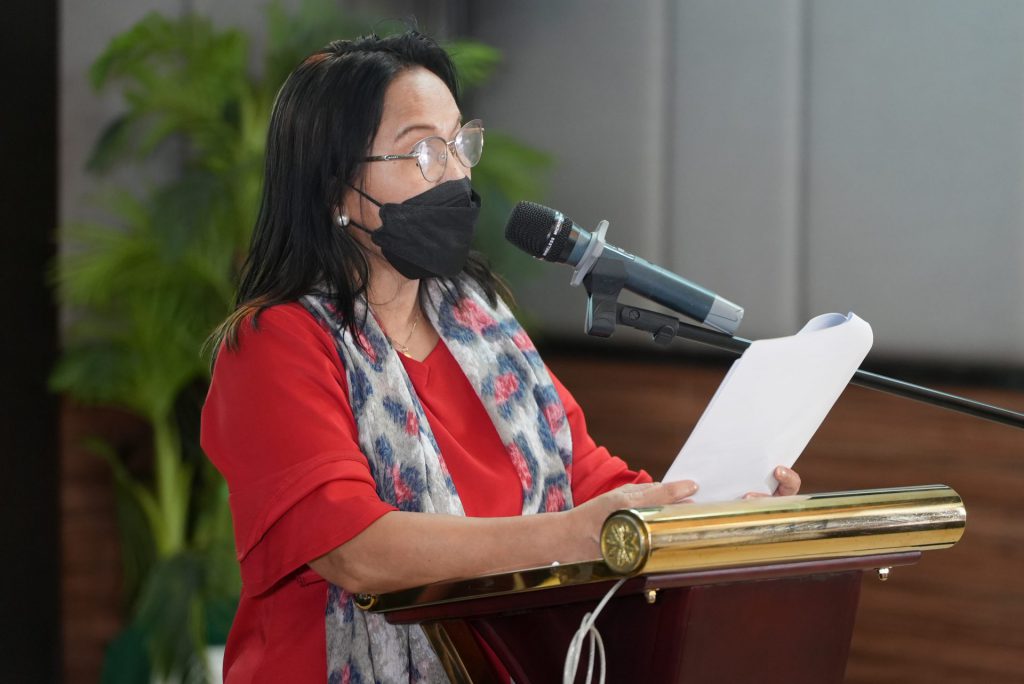
The CSW encouraged governments to take appropriate actions together with relevant entities and partners towards the following overarching conclusions: Strengthen normative, legal and regulatory frameworks; Integrate gender perspectives into climate change, environmental and disaster risk reduction policies and programmes; Expand gender-responsive finance; Enhance gender statistics and data disaggregated by sex; and Foster a gender-responsive, just transition.
Under strengthening frameworks, all forms of discrimination against women and girls in the context of climate change, environmental degradation and disasters in relation to resources, services, and access to justice must be identified and eliminated. The governments also agreed to step up multi-stakeholder efforts to combat racism, racial discrimination, and related intolerance, stigmatization, negative stereotyping and violence. To promote inclusivity, the needs of persons with disabilities must be considered in all levels of policy.
To integrate gender perspectives into climate change, environmental and DRRM policies and programs, all must ensure that these recognize and reflect the disproportionate and distinct effects of climate change, environmental degradation, and disasters on women and girls, including those who are in conflict, post-conflict, and humanitarian emergency settings. Moreover, the participation, representation, and leadership of women in matters relative to climate change, environment, and disaster risk mitigation must be encouraged.
In gender-responsive finance, increasing gender responsiveness of investment is key. Relative to environmental, climate change, and disaster risk management and reduction, governments and relevant entities must also provide national gender equality mechanisms with adequate human and financial resources to entities responsible for related policies, increase public and private financing to women’s civil society organizations, build the resilience through the financing and provision of sustainable infrastructure and public services, social protection and decent work for women, and improve investment in gender-responsive technological solutions, among others. The rights of indigenous women and girls must also be promoted and protected.
It is also timely and important to note the conclusion to bolster the capacity and coordination of national statistical and data production offices and government institutions to collect, analyze, disseminate and use data and statistics on climate change, environmental degradation and disasters. In fostering a gender-responsive and just transition, the right to work and rights at work of all women must be promoted.
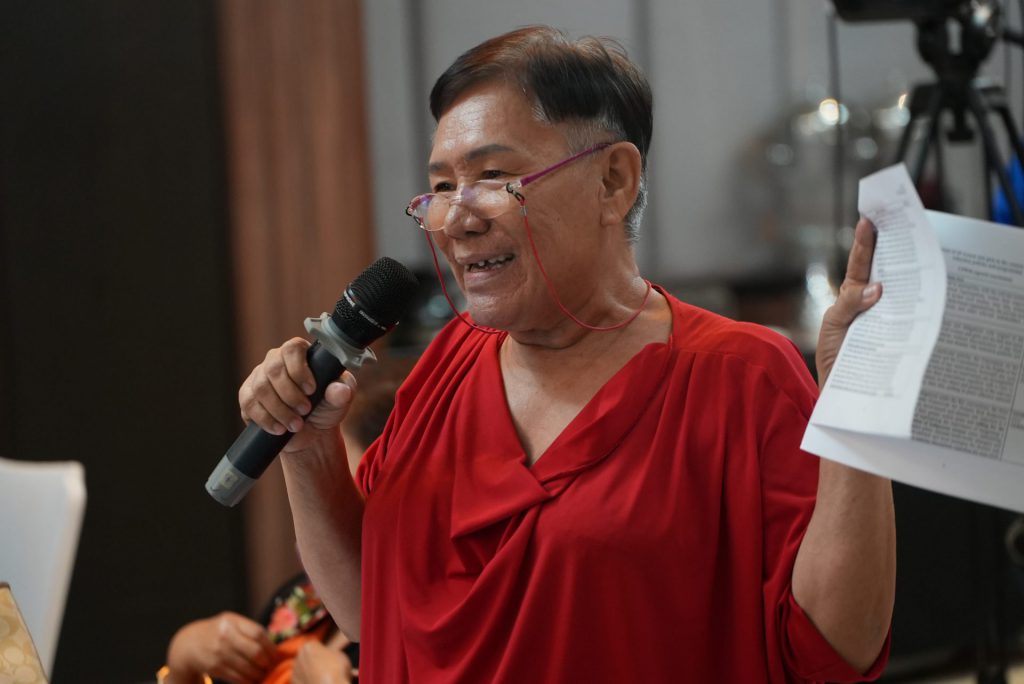
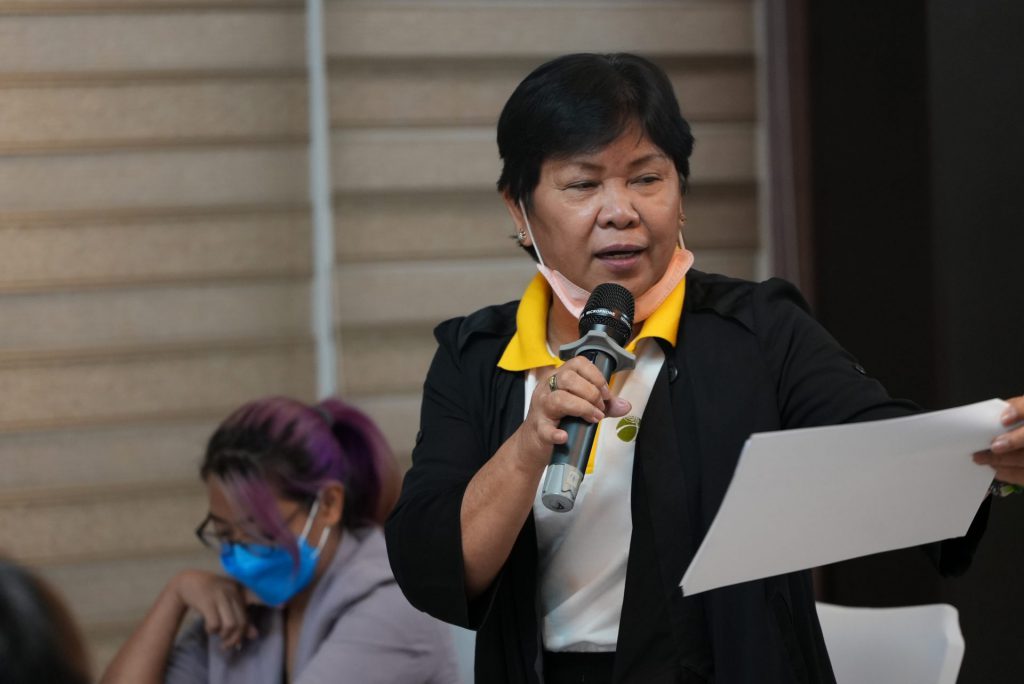
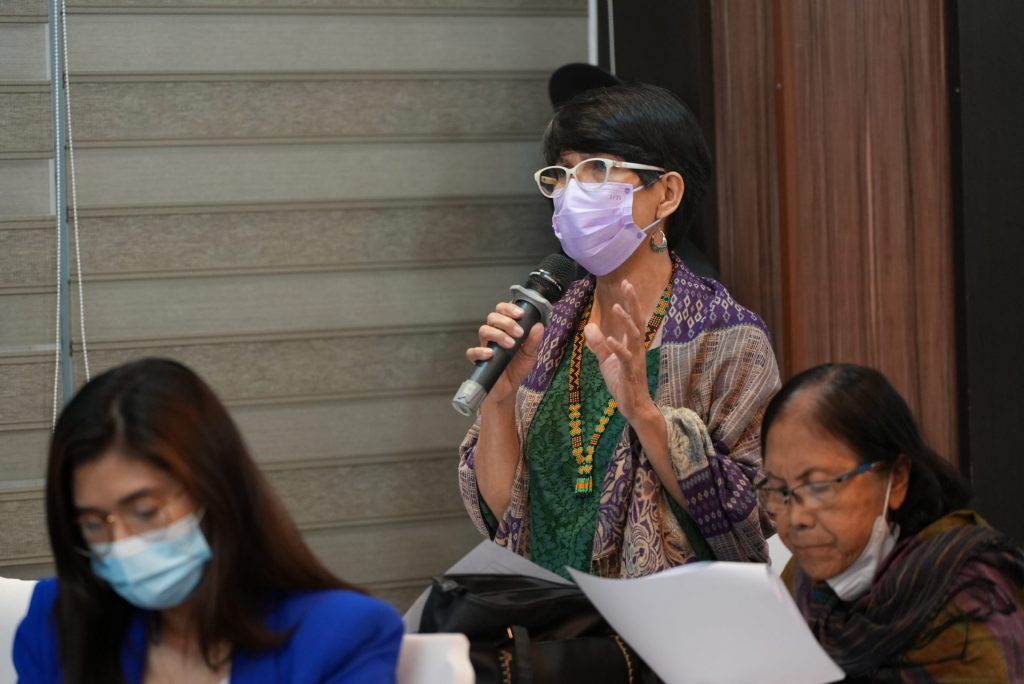
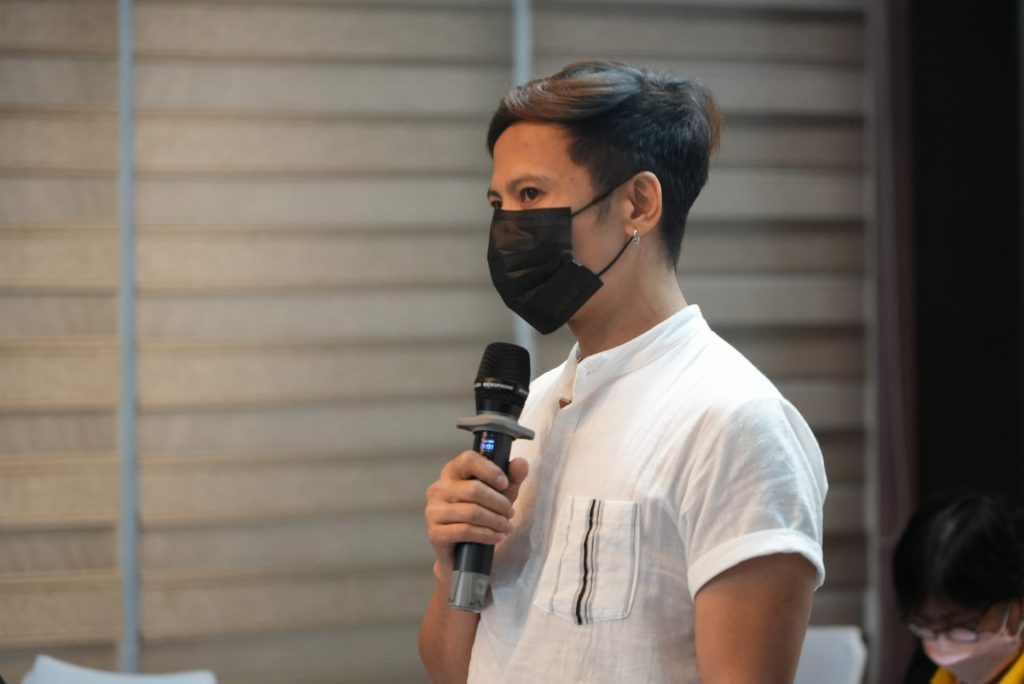
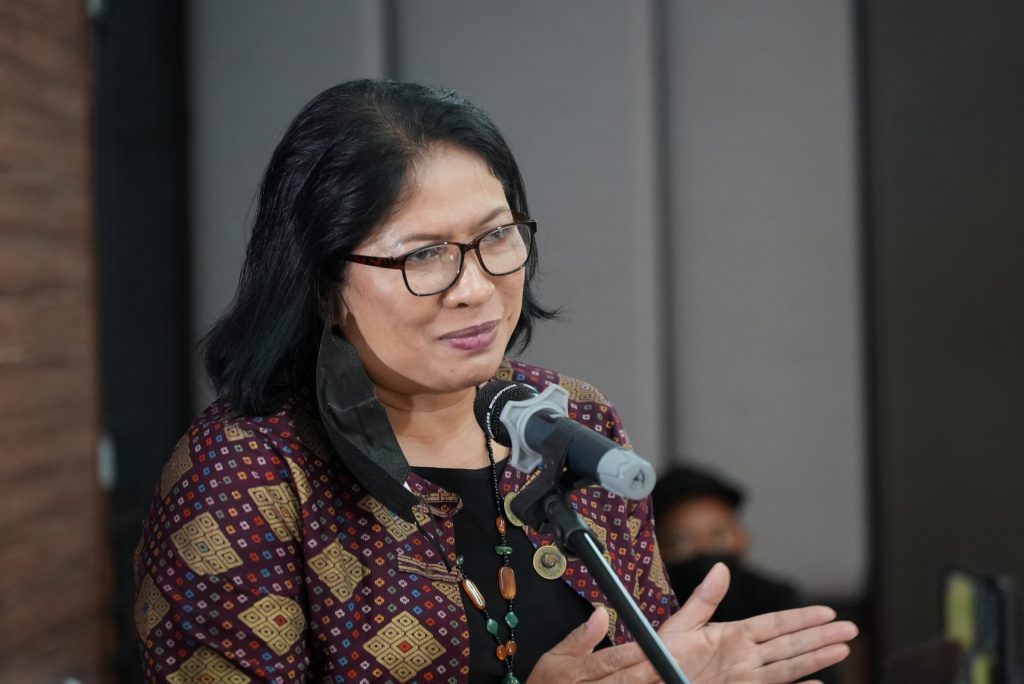
After the discussion of the agreed conclusions, participants were able to ask questions. Some participants clarified the definition of the terms used like “formal work” in terms of labor and employment. Some also suggested the addition of civil society organizations and specific agencies in the identified movers in the agreed conclusions, like agencies and CSOs relative to women, peace, and security, agriculture, and indigenous peoples.
Women in Economy, Work, Agriculture
Intersecting issues relative to these pressing concerns were also discussed in the side events and reiterated in the feedback forum.
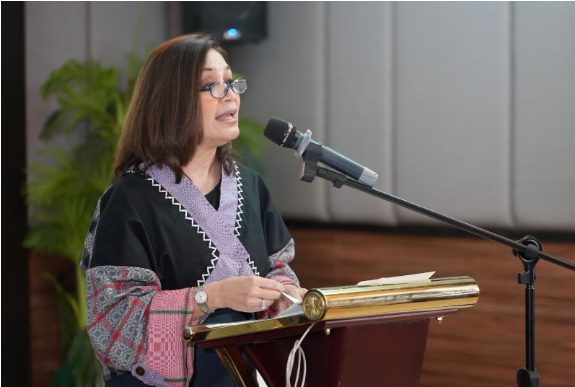
Ms. Mylene Abiva, Women’s Business Council Philippines’ Chairperson, expounded on gender stereotypes and their impact on women’s entrepreneurship and economic empowerment. She highlighted how these stereotypes affect women’s work environment, business opportunities, and career advancement. She also shared ways on how to eradicate these, including gender sensitivity training for children, promoting gender responsiveness among business and corporate leaders, promoting sustainable and inclusive MSMEs through Women’s Empowerment Principles (WEPs).
On ‘care and climate’, ED Yuzon-Chaves talked about unpaid care work and the 2021 National Household Care Survey which showed that women spend 13 hours of care work compared during the pandemic. She also shed light on gender-based violence as a result of climate change and the lack of representation and participation of women in policy and decision-making activities involving climate justice, saying “women’s voice matters.”
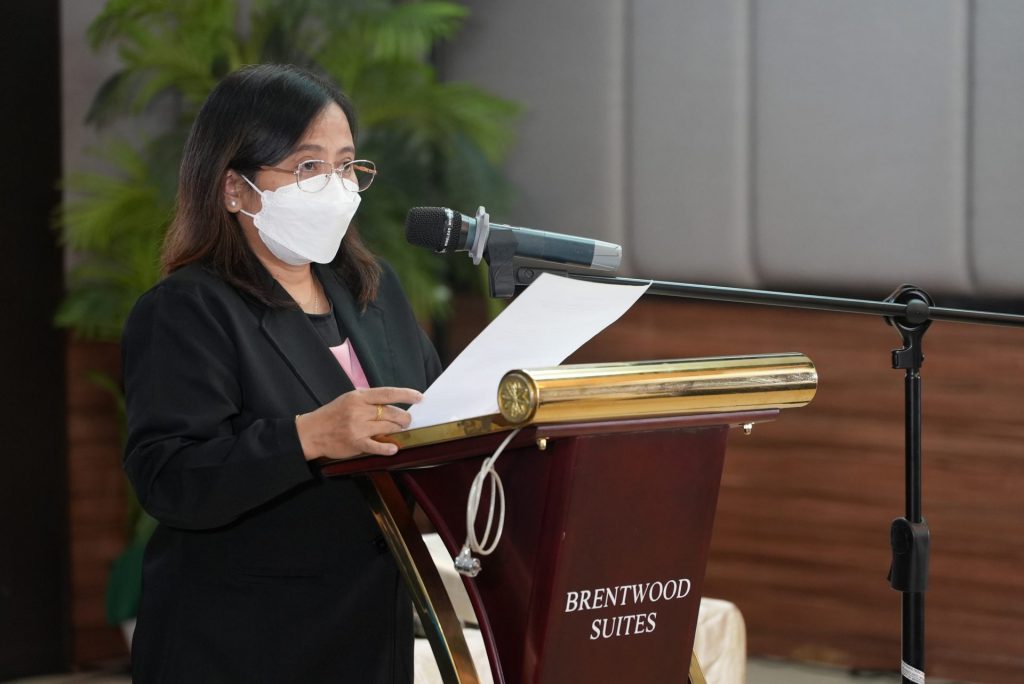
In terms of empowering women in the world of work in fragile setting, Ms. Mercy Apurado, OIC of Women’s Workers Development Division of the Labor Department’s Bureau of Workers with Special Concerns, said that “a lot of women workers were heavily affected by the pandemic as they comprise much of the informal sector, service industries, labor migration and other sectors severely affected by the pandemic.” To cushion the impact, DOLE boosted various programs, including COVID-19 Adjustment Measures Program Bayanihan, Tulong Panghanapbuhay sa Ating Disadvantaged/Displaced Workers, and the National Employment Recovery Strategy (NERS) 8-Point Employment Recovery Agenda.
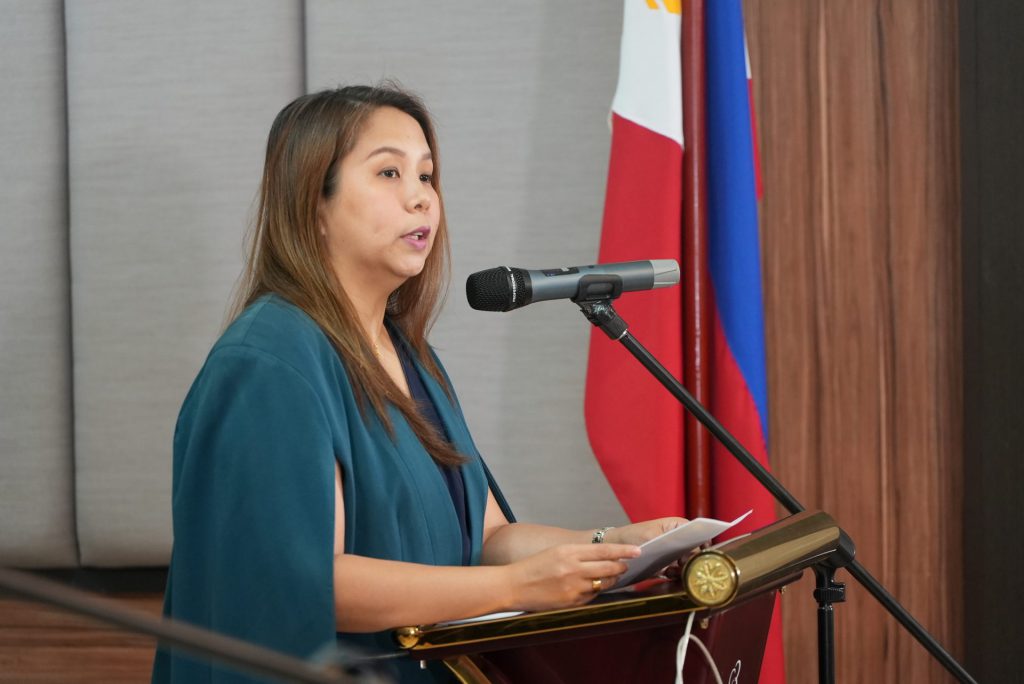
Zooming in on feminist climate action and the rule of law, Dir. Annray V. Rivera, Program Director of the Agriculture Department’s Gender Equality and Social Inclusion (GESI), urged participants to address gender issues in agriculture including unpaid work , wage disparity, multiple burdens, and others. This can be done by giving an enabling environment where women can showcase competencies, join decision making towards a transformational change that will result in a more climate resilient, inclusive, competitive, and environmentally-sustainable agriculture sector. In establishing gender parity as the foundation of sustainable food systems and climate-resilient agriculture, she said that “closed gender gap equals closed hunger gap.”
Steps forward: Commitment, Action, CSW67
To end the feedback forum, participants expressed their pledge to support the Agreed Conclusions of UN CSW66 and to “strive to implement these commitments in order to provide a climate and disaster-resilient country where no one is left behind.”
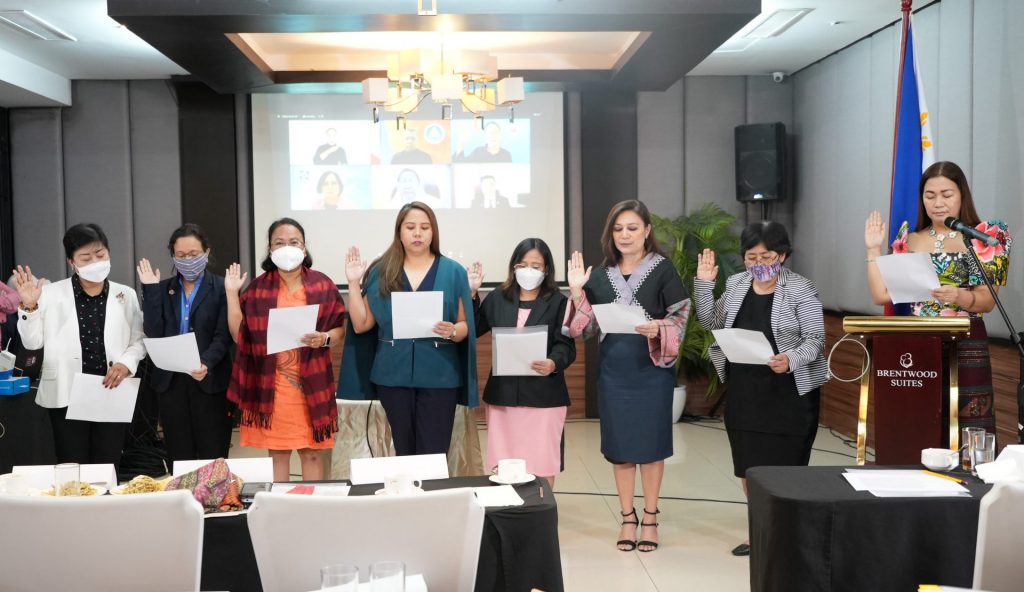
Looking forward, Ms. Christina Rola-McKernan, Socio-Cultural Division Director of DFA UN and International Organizations (UNIO), expressed hopes for another fruitful participation of the Philippines at the CSW67 in March 2021.
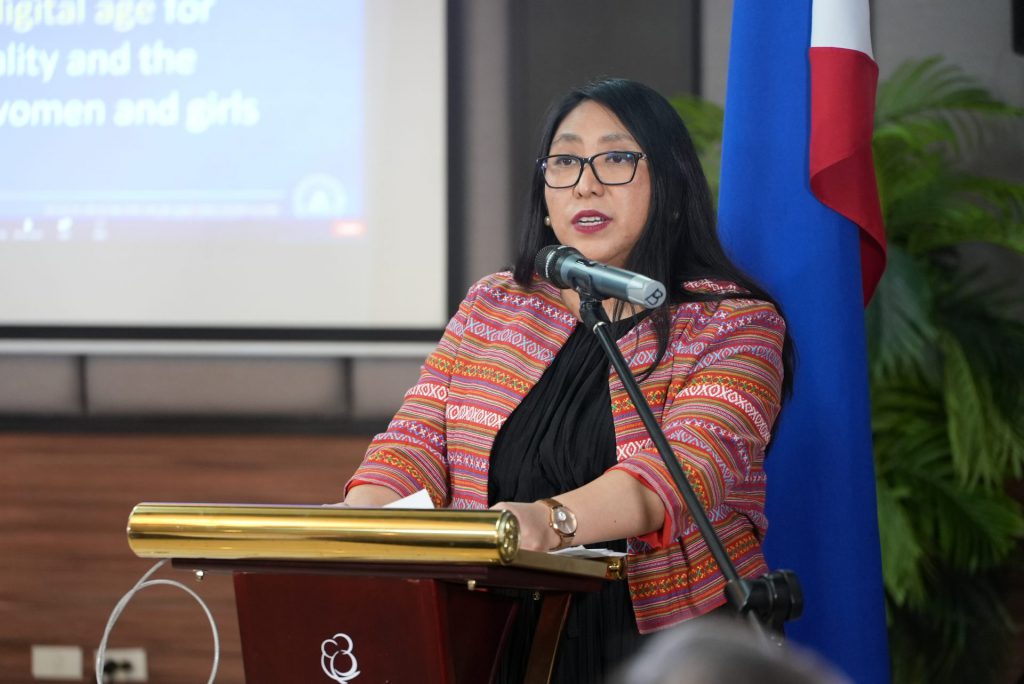
“The priority theme is: Innovation and technological change, and education in the digital age for achieving gender equality and the empowerment of all women and girls. While the review theme is: Challenges and opportunities in achieving gender equality and the empowerment of rural women and girls,” Dir. Rola-McKernan shared.
Concluding the session, Sec. Robert E.A. Borje, Vice Chairperson and Executive Director of the Climate Change Commission emphasized the urgency of furthering climate justice.
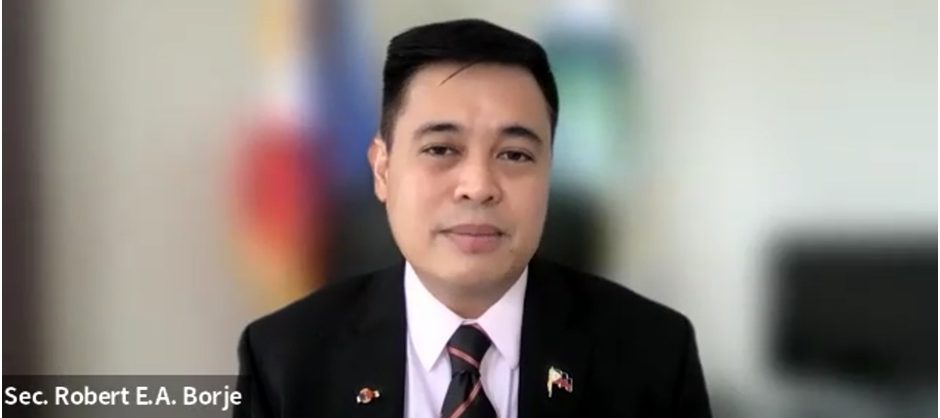
“We should help our stakeholders understand that climate change is real… and that there is an urgency for us, as public servants, to do what we must and what we should, in order to address this. We have to ask the question, “Have we done enough?” We can say we are doing something but we really need to do more,” Sec. Borje enthused.
The Commission on the Status of Women was established in 1946 and is the principal global intergovernmental body exclusively dedicated to the promotion of gender equality and the empowerment of women. Since 1996, the CSW has led the monitoring and review of the progress and challenges relative to the Beijing Platform for Action, and in mainstreaming a gender perspective in UN activities.

